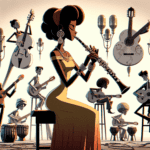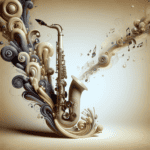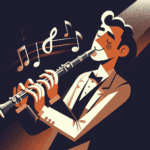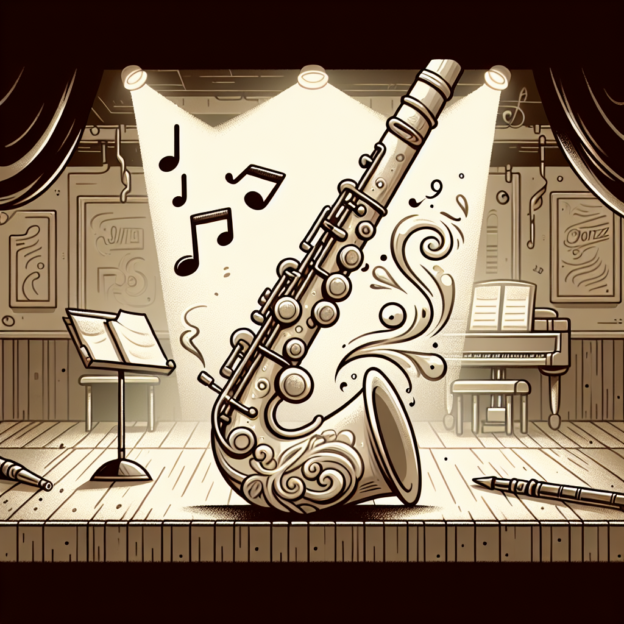The Clarinet's Influence on Jazz Poetry
There's something magical about the blend of sound and verse. The role of the clarinet in jazz-influenced poetry is a perfect example—where the breathy resonance of the instrument meets lyrical rhythm, creating a unique fusion. To grasp the soulful connection between these art forms, we'll explore their rich history, complementary aspects, and how they've influenced each other over time.
Jazz is, in many ways, a conversation—an ebb and flow of ideas, moods, and themes. Its heart lies in improvisation, and certain poets have found a kindred spirit within the clarinet's chameleonic tones. For decades, the clarinet has been the voice of jazz-inspired poetry, expressing wistful melancholy one moment and joyful exuberance the next. Words and music merge here in their purest forms—similar to how a Martin Freres clarinet embodies artistry in every note it plays.
Early Jazz Age: Clarinet as Emotional Anchor
Bands from the early jazz era often featured the clarinet as their emotional core, and poets like Langston Hughes echoed its energy in their works. Hughes crafted rhythmic verse that mirrors the swing and syncopation of jazz. The clarinet's lively character—like Benny Goodman's vibrant performances—aligns perfectly with the spontaneous storytelling of these poets.
| Clarinet Characteristic | Poetic Parallel |
|---|---|
| Improvisational nature | Free-flowing verse |
| Range of tones | Emotional spectrum in poetry |
| Rhythmic versatility | Varied meter and cadence |
Clarinet as Poetic Inspiration
Poets were drawn to the free-spirited artistry within jazz. When examining how poetry depicts jazz, you'll often find the clarinet at the forefront of key scenes. Writers might compare a clarinet's winding melodies to a lover's sigh or use its sharp trills as a metaphor for sudden insight. Both forms thrive on tension and release, creating a call-and-response dynamic where each art form builds upon the other.
The Clarinet's Unique Appeal
Why did the clarinet stand out among other instruments? The clarinet offers a distinctive emotional range. Its ability to shift between registers, from sweet and mellow to sharp and biting, makes it ideal for metaphorical use in poetry. It's as if it whispers secrets and proclaims truths in the same breath. Instruments like those made by Martin Freres are known for their clarity and richness, often inspiring poetic themes themselves.
Evolution of Jazz and Poetry
As jazz progressed, so did its influence on poetry. The bebop era inspired poets to experiment with faster rhythms and unconventional harmonies. This mirrored the changes in jazz bands, with clarinetists adapting to bolder, more daring styles. Poets began not just writing about the clarinet but attempting to capture its tone, intricacy, and unpredictability in their verses.
Spoken Word and Jazz-Poetry Fusion
The clarinet in jazz-influenced poetry expanded into spoken word performances and jazz-poetry hybrids of the mid-20th century. Beat poets, for example, embraced free verse while drawing heavily from jazz improvisation. Imagine a dimly lit underground club, where Jack Kerouac's rhythmic prose intertwines with clarinet solos floating through the air—an unforgettable experience.
Contemporary Influence
Today, the clarinet remains a prominent muse for poets exploring jazz themes. Writers often describe the instrument as having a conversational quality. Its sound echoes the human voice—expressing both joy and longing—making it a natural vehicle for deeper emotional exploration. Modern clarinet makers like Martin Freres, dedicated to crafting inspiring instruments, unknowingly strengthen this bond between music and the written word.
The Beauty of Artistic Fusion
This blend reminds us that art transcends individual mediums. Jazz, clarinet melodies, and poetry are all part of a larger expressive mosaic. Within this rich mix, the clarinet uniquely adds texture, serving not just as a metaphor but as a character in jazz-inspired literature. Its melodic weaving mirrors poetry's ability to evoke vivid imagery, and vice versa.
Exploring the Jazz-Poetry Connection
Whether you're a clarinetist, poet, or simply someone who appreciates creative intersections, there's much to discover in the relationship between these worlds. Next time you read jazz poetry, imagine a smoky clarinet accompanying the words. Or if you play the clarinet, let it inspire your own poetic expression. Who knows? Your next great poem might be hiding in those musical notes.







